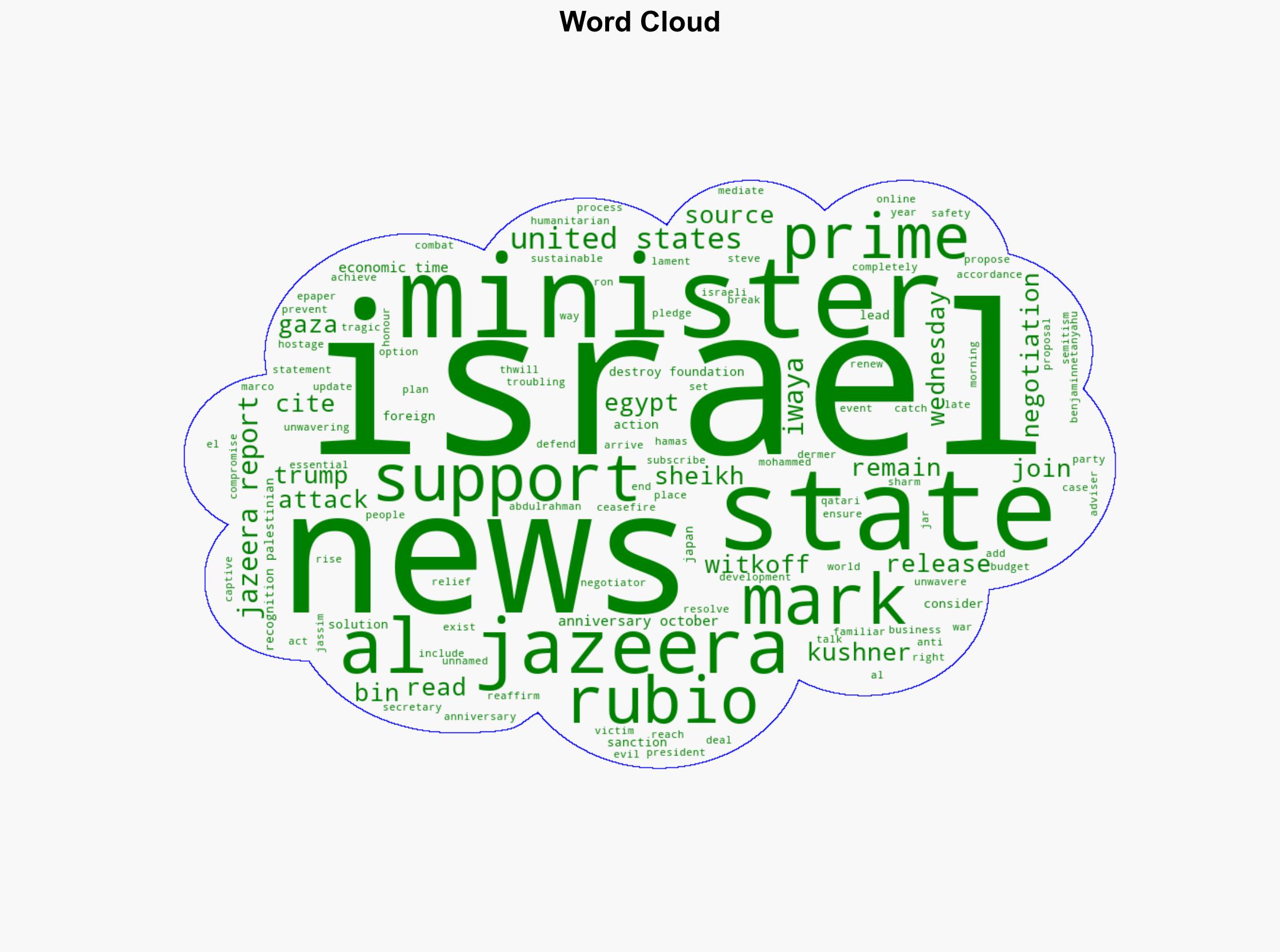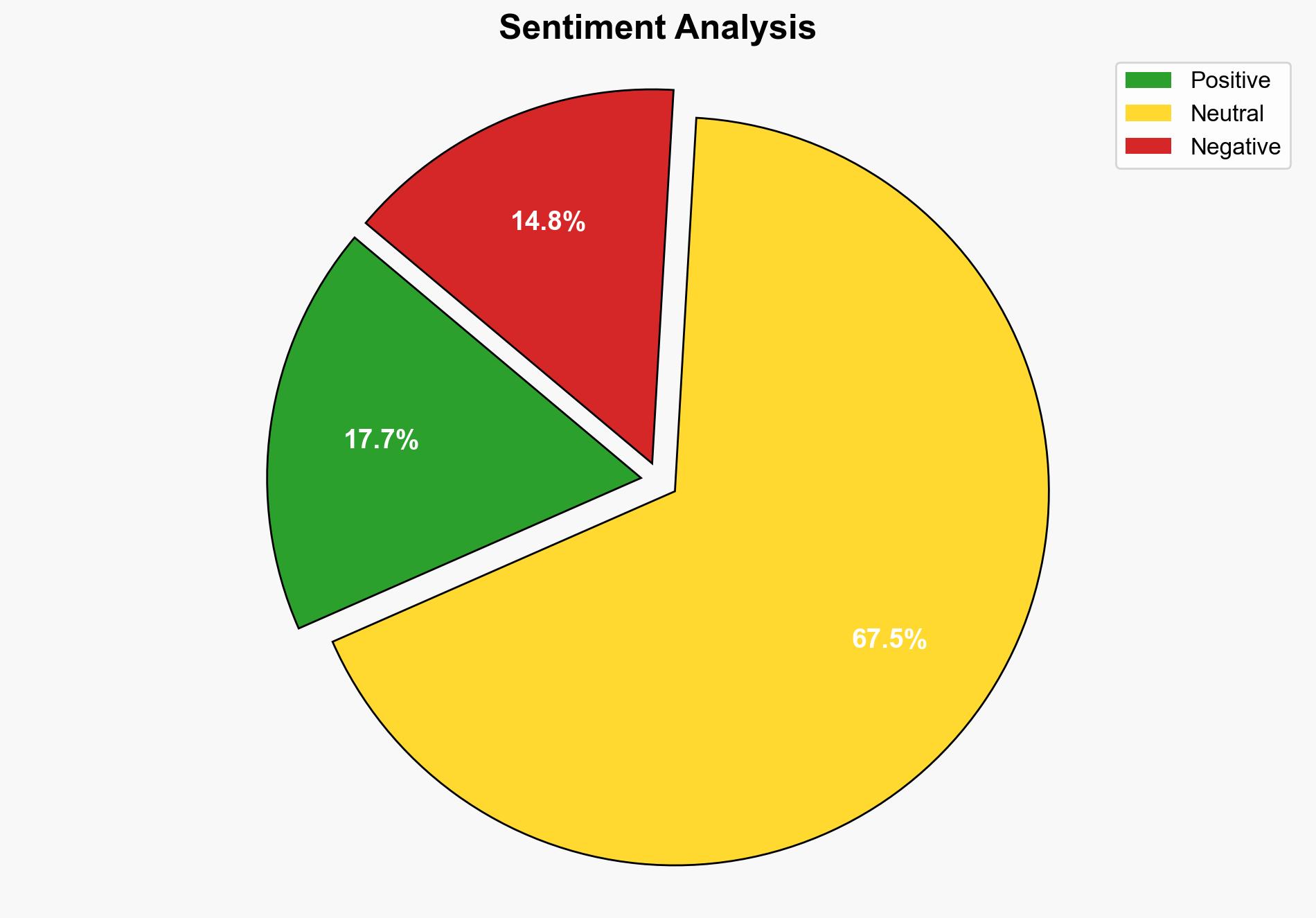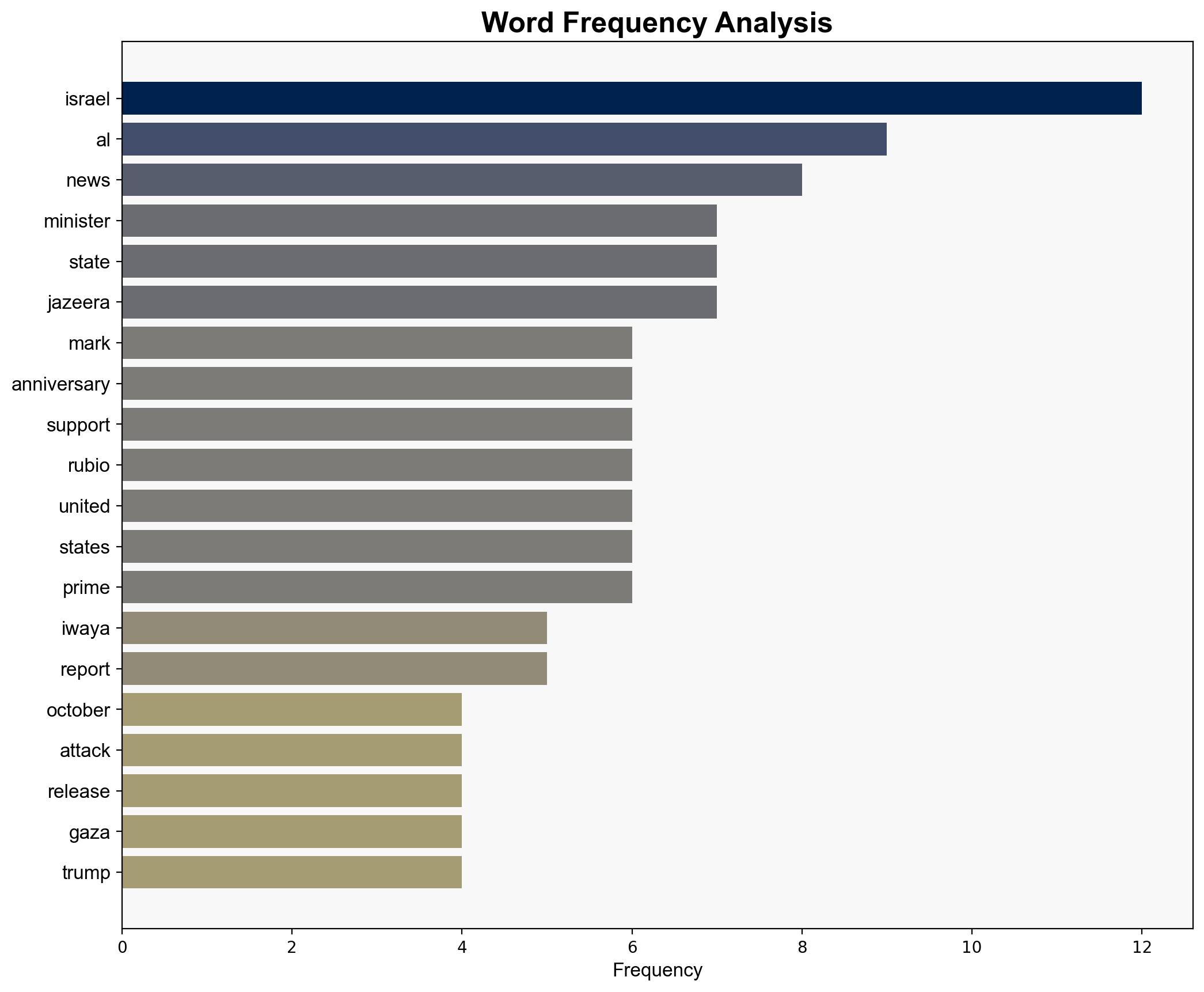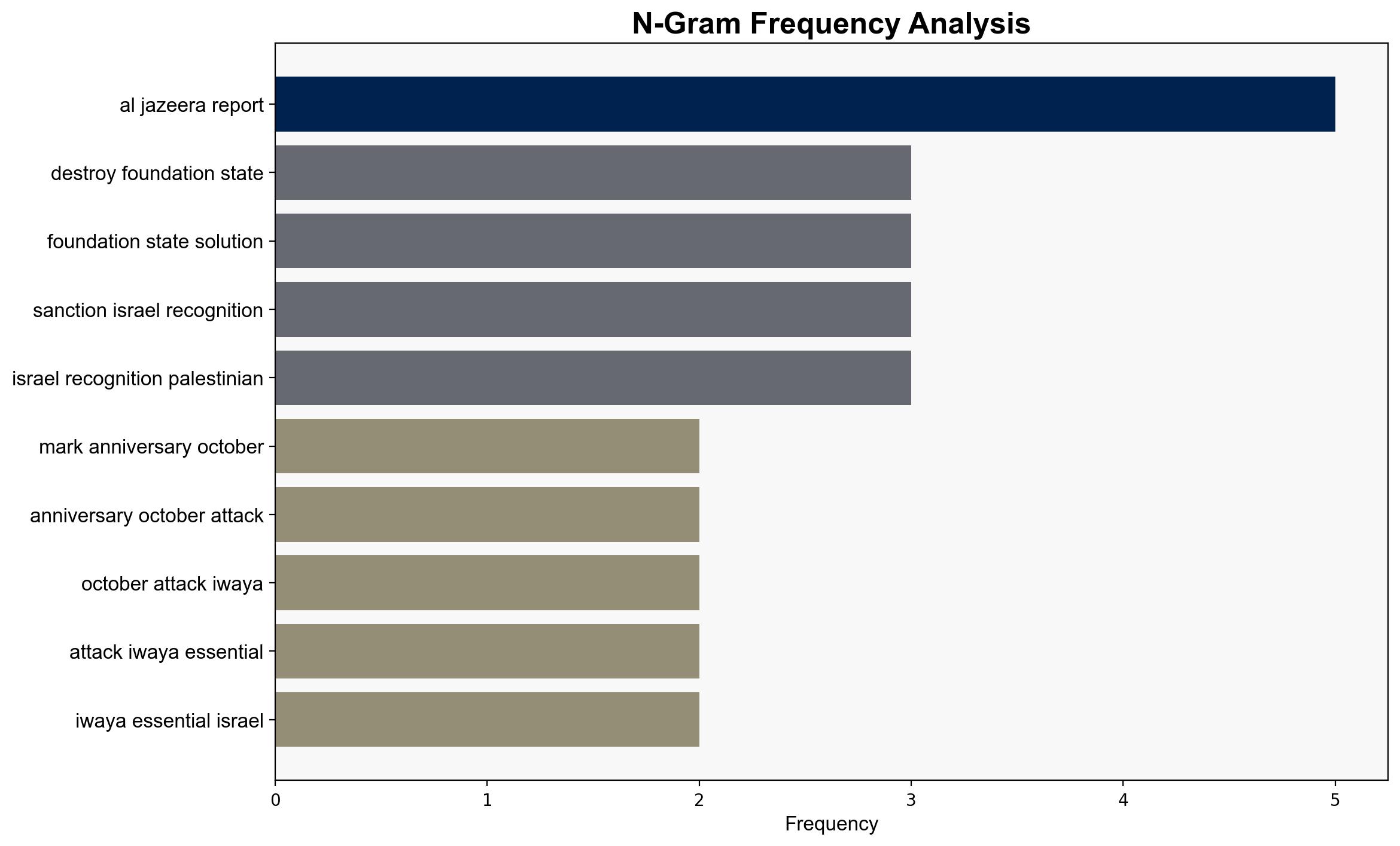Japan warns Israel against hindering two-state solution – The Times of India
Published on: 2025-10-08
Intelligence Report: Japan warns Israel against hindering two-state solution – The Times of India
1. BLUF (Bottom Line Up Front)
Japan’s warning to Israel regarding actions that could undermine the two-state solution reflects a potential shift in diplomatic stances that could lead to increased tensions in the Middle East. The most supported hypothesis is that Japan is leveraging diplomatic pressure to influence Israel’s actions, with a medium confidence level. It is recommended that stakeholders monitor Japan’s diplomatic engagements closely and prepare for potential shifts in international alliances.
2. Competing Hypotheses
1. **Hypothesis A**: Japan is using diplomatic warnings as a strategic tool to influence Israel’s policy towards the Palestinians, aiming to maintain regional stability and support a two-state solution.
2. **Hypothesis B**: Japan’s statements are primarily symbolic, intended to align with international norms and domestic public opinion, with no substantial impact on its foreign policy or economic relations with Israel.
Using ACH 2.0, Hypothesis A is better supported due to Japan’s explicit mention of potential sanctions and recognition of Palestinian statehood, indicating a readiness to take concrete actions if necessary.
3. Key Assumptions and Red Flags
– **Assumptions**: It is assumed that Japan’s foreign policy is heavily influenced by its economic interests and international image. Another assumption is that Israel’s actions are perceived as a direct threat to the two-state solution.
– **Red Flags**: The lack of specific details on what actions by Israel would trigger sanctions or recognition of Palestinian statehood. Additionally, the potential over-reliance on unnamed sources in the reporting could indicate bias or misinformation.
4. Implications and Strategic Risks
– **Geopolitical Risks**: Japan’s stance could strain its relations with Israel and possibly affect its alliances with countries that support Israel unconditionally.
– **Economic Risks**: Potential sanctions could impact bilateral trade, affecting industries reliant on Israeli technology and innovation.
– **Escalation Scenarios**: If Japan proceeds with sanctions, it could prompt retaliatory measures from Israel or its allies, leading to broader regional instability.
5. Recommendations and Outlook
- Monitor Japan’s diplomatic communications and any legislative actions regarding sanctions or recognition of Palestinian statehood.
- Engage in diplomatic dialogues to clarify Japan’s position and intentions.
- Scenario Projections:
- **Best Case**: Japan’s diplomatic pressure leads to renewed peace negotiations and a sustainable ceasefire.
- **Worst Case**: Diplomatic tensions escalate, leading to economic sanctions and regional instability.
- **Most Likely**: Japan maintains a balanced approach, using diplomatic channels to influence without immediate sanctions.
6. Key Individuals and Entities
– Takeshi Iwaya
– Marco Rubio
– Steve Witkoff
– Jared Kushner
– Benjamin Netanyahu
– Ron Dermer
– Sheikh Mohammed bin Abdulrahman bin Jassim Al Thani
7. Thematic Tags
national security threats, regional focus, diplomatic relations, Middle East peace process





